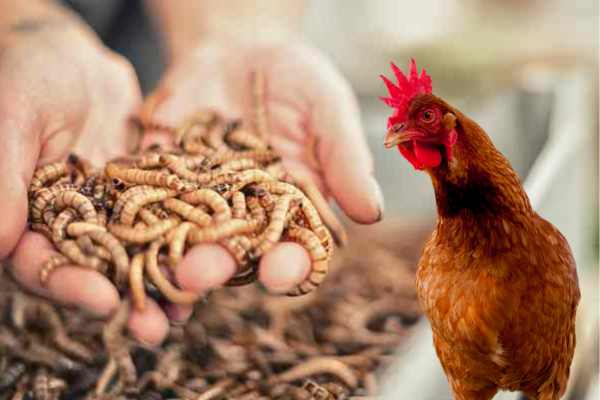From food waste to chicken feed
This luxury hotel is pioneering a wriggly solution to meet its sustainability ambitions.

The Hyatt Regency Sydney has taken a sustainable leap into the future with a new onsite unit to process most of its food waste.
It is the first hotel to install a modular, robotic insect farm known as a "waste robot" that uses Black Soldier Fly larvae to convert kitchen food waste into nutrient-rich insect protein and fertiliser.
Developed by Canberra-based Goterra, the “waste robots” not only divert waste from landfill but can also contribute to a circular economy.
The protein that is produced by the larvae is fed to chickens from the award-winning Hilltops Free Range egg farm and the eggs from these chickens are then served to guests at the Hyatt, completing the cycle.
"We are the first hotel in the world to implement Goterra’s compact sustainable food waste management system onsite"
Hilltops Free Range says the use of insect protein as chicken feed is particularly beneficial, as it provides a lean and high-protein diet for the chickens. This approach also ensures that nutrients lost in food waste are returned to the food chain and soil, promoting a more sustainable food supply.
The Hyatt’s initiative reflects a growing trend in the hospitality industry to reduce environmental impact. The hotel's collaboration with Goterra, which has been rearing insects on food waste since 2016, highlights the potential for innovative solutions to address the pressing issue of food waste.
Goterra’s system was first deployed commercially at Sydney's Barangaroo towers in 2020. It can convert food waste from various sources - retailers, restaurants, manufacturers, and farms - into sustainable resources. The technology is not limited to large-scale operations; smaller businesses can also send their waste to Goterra’s facilities for processing.
A fresh approach
The Hyatt Regency is one of Sydney’s largest premium hotels and reducing food waste has become a key focus at its Sailmaker restaurant, with the recent installation of two microfarms providing fresh-grown produce.
And by sourcing eggs from Hilltops farms, the Hyatt Regency says it not only supports biodynamic and organic farming practices but can also offer guests the freshest pastured eggs from humanely raised chickens.
Sailmaker estimates the Goterra system will reduce food waste by 95% in just 24 hours and cut food waste greenhouse gas emissions by 97% compared to landfill.
“We are the first hotel in the world to implement Goterra’s compact sustainable food waste management system onsite,” the restaurant says. “One year of hotel food waste processed by Goterra could feed approximately 150,000 Hilltops chickens.”
Goterra’s automated Modular Infrastructure for Biological Services (MIBs) are robot-powered insect farms that reside in stackable shipping containers that can be deployed and serviced anywhere. Insects working in tandem with the MIB systems consume food and organic waste over 12 days. As they consume the food waste, they also produce a nutrient-rich insect byproduct made from Black Soldier Fly Larvae and their castings called Frass, which can be used to improve soil condition.





